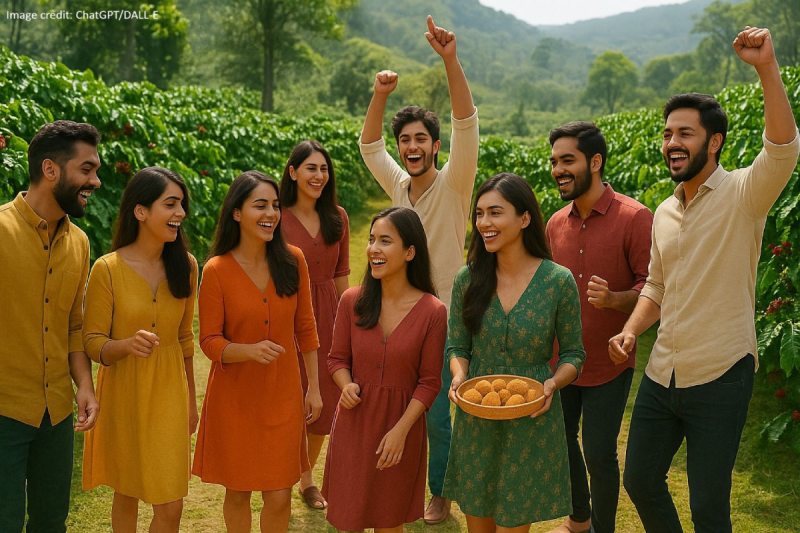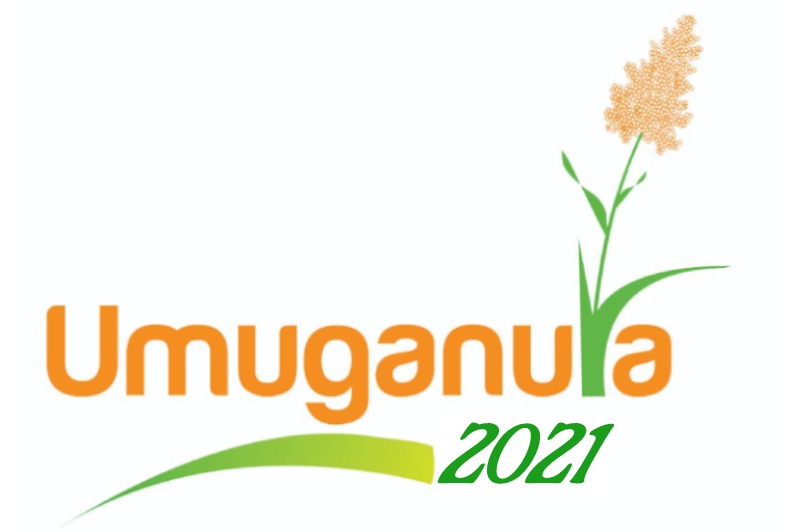Festivals & Events
In the Heart of Coffee Country, Suggi Habba Outshines Makara Shankranti

By Indradev Kadidal.
Indradev Kadidal is a writer and technologist based in El Dorado Hills, California. His nostalgic essays, often laced with wry humour, revisit the rhythms of life on Chikkamagaluru’s coffee plantations—echoes of childhood summers spent in the red-soiled hills of the Malnad. When not writing, he works at the crossroads of AI, storytelling, and social impact.
While much of India marks Makara Shankranti with greetings and modest celebrations, deep in Karnataka’s coffee belt, a lesser-known festival takes the spotlight: Suggi Habba, a two-day celebration of harvest, heritage, and serious hospitality.
CHIKKAMAGALURU, KARNATAKA:
If your phone was pinging with Shankranti wishes today, you’re not alone. WhatsApp is overflowing with them. And to those who remembered to send one, thank you. To the rest, consider this your gentle reminder.
Beyond the digital greetings lies a festival rooted in astronomy, agriculture, and ancient Indian tradition. While Makara Shankranti marks the sun’s transition into Capricorn (Makara Rashi) and the end of the winter solstice, its celebration varies widely across the country. For most regions, it marks the beginning of a new month. In Bengal, uniquely, it marks the end.
But a curious question remains: why does this particular Shankranti one of twelve, observed monthly in the traditional Indian solar calendar receive all the attention?
The answer lies in timing and tradition. Makara Shankranti aligns with the start of the harvest season, making it a natural point of celebration for farmers across India. And in Karnataka, this seasonal joy takes the form of a vibrant, community-wide festival known as Suggi Habba.
A Harvest Festival with Local Flavour
While southern states like Tamil Nadu celebrate Pongal, Karnataka follows its own path. Suggi Habba, literally the “Harvest Festival”, is observed with particular energy in the hills and valleys of Chikkamagaluru, Karnataka’s coffee heartland.
Here, the celebration takes on a highly organised and deeply festive form. The community divides itself into zones. On Day 1, one zone hosts while the others visit. On Day 2, the roles reverse. What follows is a ritual of hospitality, food, and festivity that stretches from morning to night.
From House to House, a Feast in Every Step
At the core of the Suggi Habba experience is the tradition of house-hopping. Families open their doors and kitchens to a rotating stream of guests. The signature dish? Kadubu, small steamed rice dumplings served with spicy mamsa saaru, a rich meat curry often made with goat, chicken, or occasionally wild boar.
Every visit begins with a meal and a drink, usually whisky or beer, and often ends with the familiar refrain from guests:
“Illa-illa! Saaku, avaru-mane-ge hoga-beku next-u!”
(“Enough! We still have to visit the next house!”)
But protest is mostly symbolic. The pattern continues, house after house, through the day. By evening, participants are often unsure whether they’re full, tipsy, or simply overwhelmed by the sheer scale of celebration.
Day Two: A New Zone, Same Spirit
The following day, the entire operation shifts to the next zone, where the festivities resume with equal if not greater enthusiasm. In villages like Avathi, where family ties and tradition run deep, the event is elevated even further. Residents often say that every day in Avathi feels like Suggi Habba, but this one stands out.
Hospitality reaches its peak. Generosity knows no bounds. And the community, from elders to children, joins in the shared joy of harvest and togetherness.
A Festival of the Land and Sky
The beauty of Suggi Habba lies not only in its celebration of food and fellowship but also in its quiet acknowledgment of the ancient Indian way of life, where time was measured not just by clocks or calendars, but by stars, crops, and seasons.
While modern India has largely reduced Shankranti to a single January day, traditions like Suggi Habba remind us of a broader and older rhythm one that valued every Shankranti, every solar milestone, and every moment of communal gratitude.
This year, while the rest of the country exchanged digital greetings, small villages in Karnataka lit up with laughter, aroma, and age-old rituals passed from generation to generation.
-

 Business7 days ago
Business7 days agoCorporate Social Responsibility in Action: Amerilodge’s Support of Health and Education Causes
-

 Tech2 weeks ago
Tech2 weeks agoAdobe Releases New AI-powered Video Editing Tools for Premiere and After Effects with Significant Motion Design Updates
-

 Business3 weeks ago
Business3 weeks agoSpartan Capital Publishes 2026 Economic Outlook, Highlighting Volatility, Resilience, and Emerging Opportunities
-

 Startup4 weeks ago
Startup4 weeks agoCraig Bonn’s Guide for Spotting a Winning Pre-IPO Early
-

 Tech3 weeks ago
Tech3 weeks agoGoogle Introduces New Updates to Its Veo AI Video Generation Tool
-

 Health2 weeks ago
Health2 weeks agoFinally, an Ayurvedic Sunscreen Parents Have Been Waiting For; ShuShu Babies Gentle Sun-Care Solution for Children
-

 Lifestyle4 weeks ago
Lifestyle4 weeks agoKent Strunk: The Lifelong Twins Fans Building Family Traditions One Game at a Time
-

 Business3 weeks ago
Business3 weeks agoJohn Dianastasis Elaborates on the Value of Discretion in High-Level Consulting and Public Affairs Work











